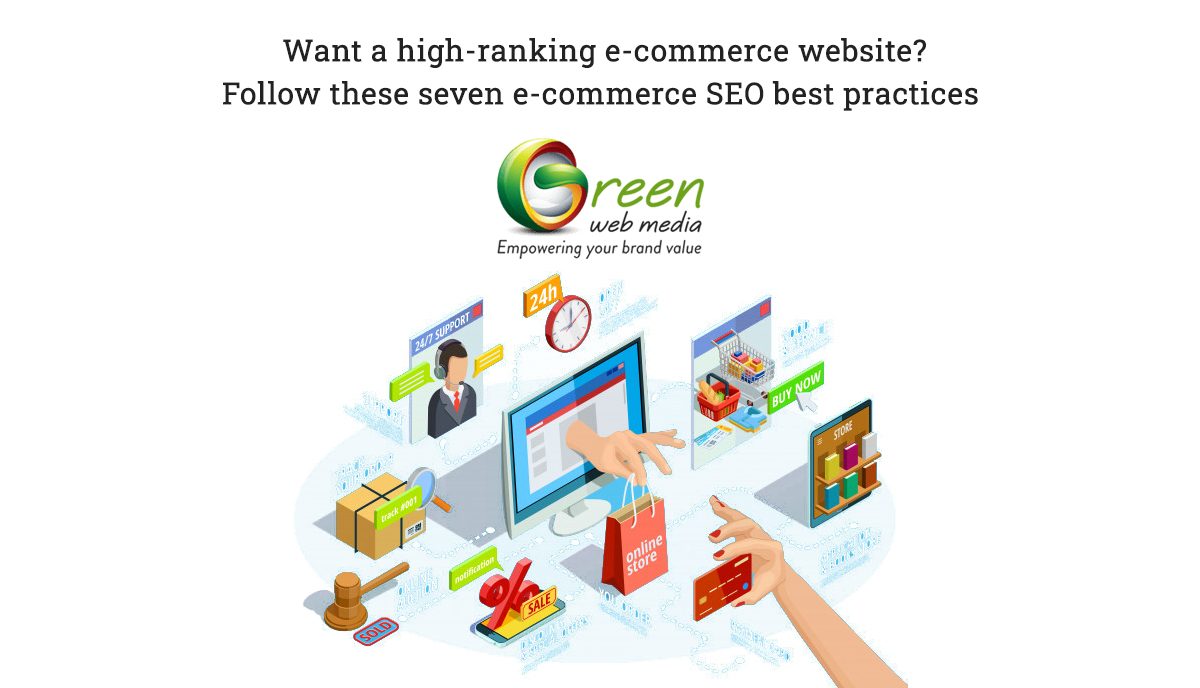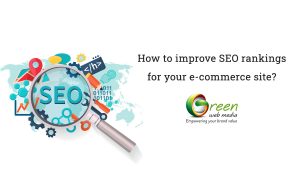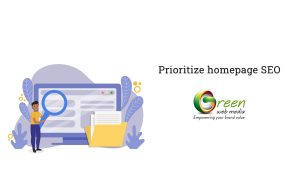Want a High-Ranking e-commerce Website? Follow These Seven e-commerce SEO Best Practices

Inbound marketing or, say, SEO leads have a close rate of 14.6%. And outbound leads like cold pitches; direct mails have a mere 1.7% closing rate. These stats clearly state that SEO is highly effective when it comes to conversion rates. As an e-commerce owner, you would always want to get more leads and conversions. But how do you accomplish it? Well, E-commerce SEO is the answer.
How to improve SEO rankings for your e-commerce site?

If you want to make your e-commerce most successful, you need to improve your ranking. And E-commerce SEO is exactly the marketing tool you need. It refers to making your e-commerce website more visible in the search engine results pages or SERPs.
As a result, your target audience will be able to find your products. And your sales revenues will go up too. So, are you ready to take your online business to a new level?
Below are seven e-commerce SEO best practices that help you rank higher.
1 – Find the right keywords

Keyword research should be your first step. You must get this part right. Otherwise, you will experience unpleasant outcomes as below.
- You will end-up targeting keywords that are too challenging. So you might not reach the first page of search results.
- You might rank for keywords that don’t attract much traffic. Or such keywords may not lead to customer purchases.
If you don’t want to be in any such situation above, then focus on keyword research. Your goal is simple. You want to target keywords that you can rank easily. These keywords should be getting a significant search volume. And it must have a good conversion rate. Now you might ask how to find such keywords? Well, there are three factors you need to consider.
- Keyword search volume – Figure out how often people search for a particular keyword. Higher the search volume, the more visitors you will get.
- Cost-per-click – Consider the competitiveness of a keyword in the advertising market. Some keywords may have high competition. So you can go for its long-tail alternative.
- User intent – It describes what people are looking for while typing a particular keyword. Choose keywords with clear intent.
2 – Improve your site’s architecture

Once you select the right keywords, you need to put them to action. And it begins with your website’s architecture. In simple words, site architecture refers to the navigation. It includes your product pages, category pages, etc. Your goal must be reducing the number of times users have to click to find what they want.
There are two golden rules to achieve excellent website structure. One, your website architecture should be simple and scalable. Two, each page on your site should be reachable in not more than three clicks. You can link your home page to all major category pages.
Smooth navigation and internal linking are keys to enforce authority on your pages. Such pages are more likely to appear in search results.
Here’s one tip for you – you can include a section of ‘related product’ on all product pages. It helps you add relevant internal links. Even more, it tends to increase the overall order value.
3 – Perform competitor research

You may or may not know how to begin with on-page optimization for your online store. If not, you can study your competitor’s website. Some of your biggest competitors are likely to have invested in SEO practices. And you can learn many of their secrets on their website itself. To start with, you can check the keywords they are targeting.
You can use tools like SEMrush to check the keywords used by your competitor to rank. You can learn their keywords for both paid and organic search. Also, your research doesn’t end here. You must study your competitors landing pages as well. It will show you how competitors have used those keywords to optimize their pages.
4 – Prioritize homepage SEO

Your e-commerce homepage is a crucial area. You should, of course, optimize other pages as well. And your homepage should have excellent optimization too. Below are the essential areas you should cover:
- Homepage title tag – It needs to have your business name and the main targeted keyword phrase. The title should not be more than 70 characters. And make it as compelling as possible.
- Homepage meta description – It shows up in the search results, right below the title tag. It describes your business to the users. So make it attractive for enough for people to click on your link.
- Homepage content – It tells people what your business is about and what products you offer. Keep the information readable and clear. You may add your USP and the best products on the page.
5 – Optimize your product pages

Product pages are the heart of your e-commerce business. You must ensure to optimize them properly. You should provide all the necessary information so that search engines can find your product. Below are some key areas you should focus on.
- Product name – The name of your product often gets used in the SEO title and URL. You can make a smart move by including a keyword phrase in your product’s name.
- Image optimization – 75% of people rely on the product images to decide whether to buy it. Thus, make sure you have high-quality photos showing products from different angles. Also, name the product image with the product name and main keyword.
- FAQ content – Customers are likely to have queries about your product. If their doubts go unanswered, they may not buy the product. So you should have a product-related FAQ content on product pages. It will boost your conversions for sure.
- Customer reviews – It helps your develop credibility with customers. Thus, you should allow consumers to review your products. This way, the customer would trust your products and buy them.
6 – Make your website responsive

If people get poor web experience on mobile, they are 62% unlikely to buy from you. You got to know that over half of the internet population uses mobile devices to access it. It means your potential customers are likely to visit your e-commerce from their mobile phones. Thus, you have to optimize your website for mobile platforms.
The best way thing to do is making your site responsive. So users may access your online store from a laptop, tablet, or smartphone. They will nevertheless get an excellent website experience, thanks to the responsive website.
7 – Provide backlinks to your e-commerce SEO

Google considers backlinks as an essential element while ranking web pages. It’s advisable to have a decent amount of backlinks from reliable sources. It makes your website come across as more authoritative. The good news is getting backlinks is a fairly easy task.
You can start guest posting on blogs that are relevant to your business. It’s the most ethical way to build backlinks. If you want to guest post on a particular blog, write a mail to the blog owner. Entice them with three or four ideas to agree for your potential guest post.
To conclude
Those were the seven e-commerce SEO best practices to rank higher. You should know that SEO gives you the highest ROI compared to any other e-commerce marketing. Most online stores out there hardly consider search engines. But, you should follow the SEO best practices above. And soon, you will see your e-commerce getting more traffic and leads than ever.




